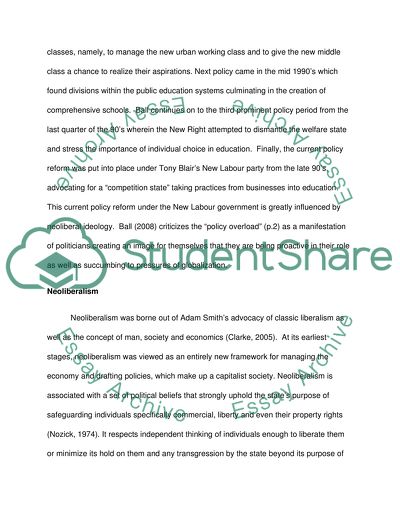Cite this document
(“Critically evaluate current neo-liberal education policies, in Essay”, n.d.)
Critically evaluate current neo-liberal education policies, in Essay. Retrieved from https://studentshare.org/education/1471835-critically-evaluate-current-neo-liberal-education
Critically evaluate current neo-liberal education policies, in Essay. Retrieved from https://studentshare.org/education/1471835-critically-evaluate-current-neo-liberal-education
(Critically Evaluate Current Neo-Liberal Education Policies, in Essay)
Critically Evaluate Current Neo-Liberal Education Policies, in Essay. https://studentshare.org/education/1471835-critically-evaluate-current-neo-liberal-education.
Critically Evaluate Current Neo-Liberal Education Policies, in Essay. https://studentshare.org/education/1471835-critically-evaluate-current-neo-liberal-education.
“Critically Evaluate Current Neo-Liberal Education Policies, in Essay”, n.d. https://studentshare.org/education/1471835-critically-evaluate-current-neo-liberal-education.


